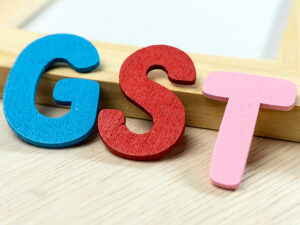How is GST treated?

For government-funded home care within the Home Care Packages Program, GST cannot be put on a home care package, and where payable, must be paid to the supplier and subsequently claimed on the Approved Provider BAS reimburse the Approved Providers BAS payment.
Capital guardians facilitate this by setting up a GST account, that will collect any GST identified on any invoices, keeping off client statements and enabling the Approved Provider to collect and eft the monies back to pay back this GST “overdraft” account.
- All the invoices of an Approved Provider are GST free except exit fees. Approved providers are required to remit GST on all exit fee income to the ATO
- Invoices from third-party organisations to clients of Approved Providers (Sub-contracted services) GST is payable unless the services are GST free, see Non-government funded home care services below
- Approved Providers will claim GST expenditure, as recorded in Capital Guardians on their BAS statement, and refund an established GST Account in Capital Guardians, thereby avoiding any GST on client home care statements.
Details can be found:
- The supply of home care services by the service provider will be GST-free under section 38-30(3) of A New Tax System (Goods and Services Tax) Act 1999 (GST Act)
- A supply of home care is GST‑free if home care subsidy is payable under Part 3‑2 of the Aged Care Act 1997 to the supplier for the care
- Eligible services Item 2.1 of Part 2 of Schedule 1, Quality of Care Principles 2014. Part 3.2: Quality of Care Principles 2014, Schedule 3 “Care and services for home care services.”
Generally, the supply of any of the following home care services are GST-free:
- personal assistance, including individual attention, individual supervision, and physical assistance with bathing, showering, personal hygiene, and grooming
- maintaining continence or managing incontinence, and using aids and appliances designed to assist continence management
- eating and eating aids, and using eating utensils and eating aids (including actual feeding if necessary)
- dressing, undressing and using dressing aids
- moving, walking, wheelchair use, and using devices and appliances designed to aid mobility, including the fitting of artificial limbs and other personal mobility aid
- communication, including addressing difficulties arising from impaired hearing, sight or speech, or lack of common language (including fitting sensory communication aids), and checking hearing aid batteries and cleaning spectacles.
Examples of home care services that are not GST-free:
- hairdressing
- housework and gardening
- preparing meals and grocery shopping for individuals
- aids, appliances and monitoring medication; however, they may be GST-free health supplies under a different section of the GST Act
- rehabilitation and health care services; however, they may be GST-free health supplies under a different section of the GST Act
- help with writing cheques, emails, and letters
- advocacy services
- accommodation
- driving individuals to and from appointments and social activities
- social and community activities, such as providing companionship, craft, and reading activities to individuals.
Please note, where an individual voluntarily contributes money to their care for services by a home care provider, many services, care will need GST to be paid, such as:
- Monitoring and applying medication
- Provision of social and community activities, such as companionship or security for clients feeling lonely or vulnerable, or initiating and taking part in craft or reading and more
- Provision of rehabilitation services
- Home help such as domestic chores, gardening or home maintenance, including making beds and general tidying of living quarters;
- Meal preparation
- Provision of travel services and transport assistance
- Grocery shopping.
